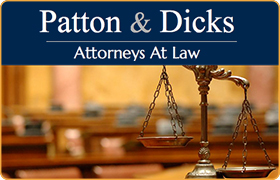Babson Park Criminal Lawyer, Florida
Sponsored Law Firm
-
 x
x

Click For More Info:
-
Patton & Dicks
465 East Main Street Bartow, FL 33830» view mapCriminal Defense, Criminal Appeals Real Attorneys Fighting For Real People
As Criminal and DUI Attorneys, we defend peoples rights in criminal courts. Find out how our services can help your situation.
863-225-3550
Amilee Marie Stuckey Kalapp
Health Care Other, Estate, Child Custody, Criminal
Status: In Good Standing Licensed: 13 Years
Flora Latonya Stewart
Mass Torts, Criminal, Personal Injury, Accident & Injury
Status: In Good Standing Licensed: 18 Years
Maximilian Smith
Farms, Alimony & Spousal Support, Child Support, Criminal
Status: In Good Standing Licensed: 24 Years

 About MeMore Info
About MeMore Info PracticesPatton & Dicks
PracticesPatton & Dicks
